E-scooters, hoverboards - the tech transforming travel
- Published
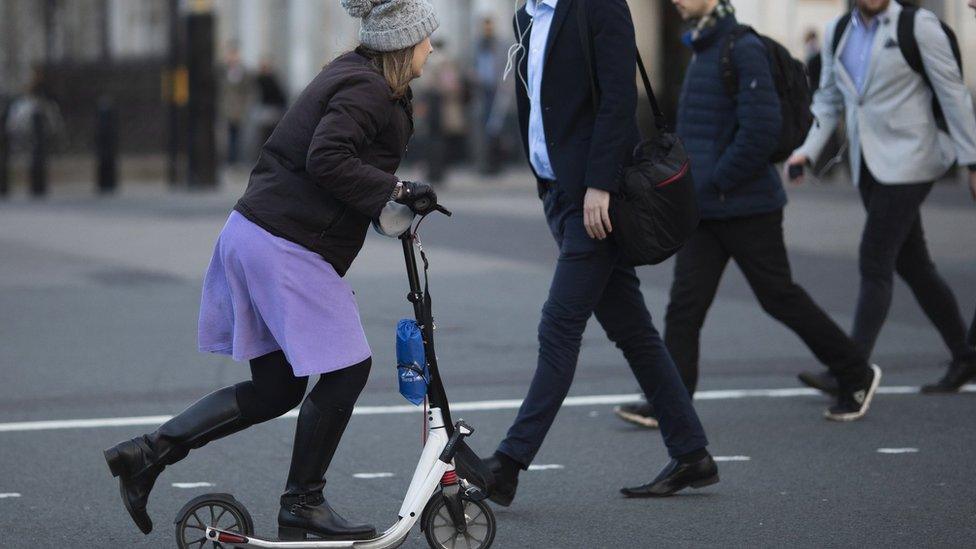
Electric scooters and other new modes of transport could be allowed on Britain's roads under a wide-ranging review, external.
It is currently illegal to ride powered scooters - which can travel up to 30mph - on public roads or pavements, but the government has said the traffic laws are "a barrier to innovation" and is considering changing them.
That's the headline anyway. The Department for Transport has subsequently played down the possibility of reform in the short term.
Nevertheless, the sustainable transport charity Sustrans says there is a "huge untapped demand for people to get around without a car".
So what are some of the new personal technologies that could transform the ways we travel?
Electric scooters
Scooters with electric motors are already commonly used in several European countries and the US.
But under the UK's Highways Act 1835, footpaths can only be used by pedestrians - the driving of any "horse, ass, sheep, mule, swine, or cattle or carriage of any description" is banned.
And electric scooters fall within the legal definition of a "motor vehicle", which means they cannot be used on public roads without meeting a number of requirements, which include conforming to technical standards and being subject to driver testing.
The Department for Transport says prospective users "find it very difficult to comply with all of these requirements", meaning it is a criminal offence to use them on the road.
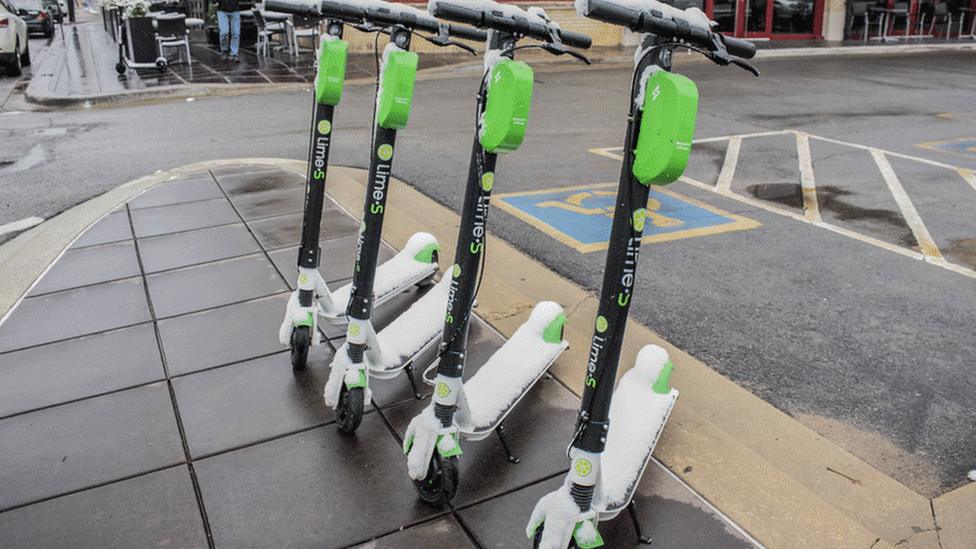
Lime is among a handful of companies offering e-scooters in cities around the world
Technology companies have been pushing for the vehicles to be allowed in the UK, arguing they will cut traffic and pollution.
Last year, Californian electric scooter business Bird launched a pilot service in London's Queen Elizabeth Olympic Park.
The company may face opposition to rolling out the scheme across London. Scooter-sharing companies operating in Paris - where there are hundreds of electric scooters - have been accused of creating chaos and endangering pedestrians.
In the US, there have also been calls to re-examine the safety of electric scooters following several deaths and a series of severe injuries.
A study by watchdog Consumer Reports, external last month suggested there had been at least 1,545 scooter-related accidents in the US since 2017.
The electric scooter scheme taking over Paris
Responding to the UK government's announcement about a review of the laws governing e-scooters, Stephen Edwards from walking charity Living Streets said: "We support moves to reduce air pollution and congestion. However, such moves must not compromise the safety of people on the pavement."
Hoverboards
Other motor-powered vehicles that may be affected by the new review include hoverboards, which rather improbably, have wheels.
A hoverboard's speed is controlled by gyroscopes inside, meaning the further forward you lean, the faster you go. Leaning backwards applies a brake.
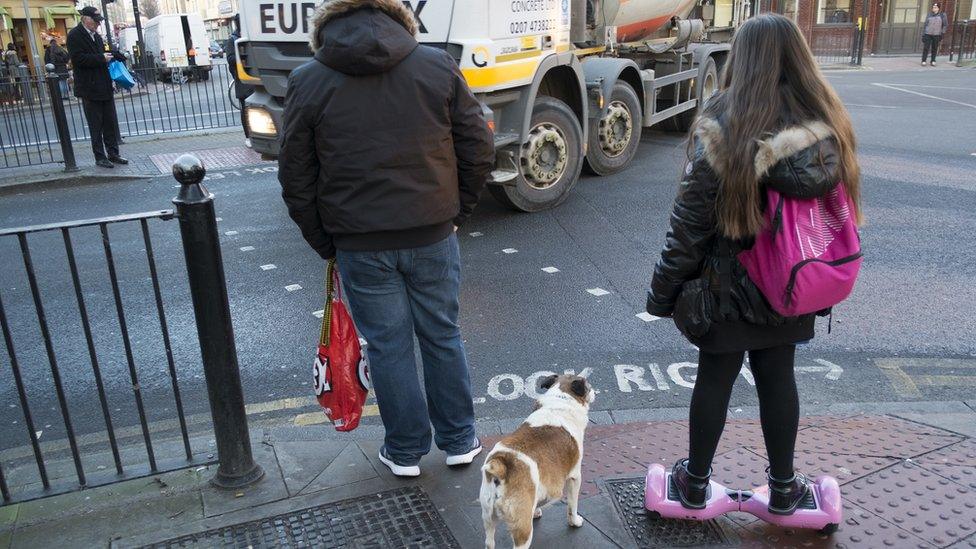
Dozens of brands have sprung up since hoverboards first became popular in 2015, with some models equipped with blue under-lights, music players and bluetooth.
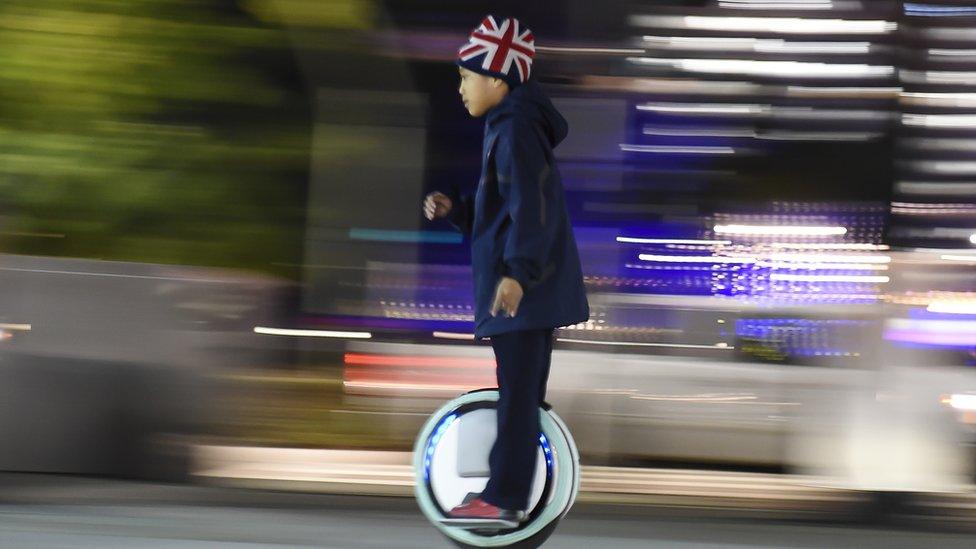
There are many variations on the hoverboard, including single wheel transporters and self-balancing electric roller skates.
All such vehicles are banned from public roads and pavements in the UK under the same rules that apply to electric scooters.
Electric bicycles
Separate regulations apply to electric bikes in Scotland, England and Wales that allow people over 14-years-old to ride them on public roads, so long as they meet certain requirements.
People do not need a licence to ride one and the bike does not need to be registered, taxed or insured, but the bike's maximum power must not exceed 250 watts and its electric motor should not propel the bike when it is travelling at more than 15.5mph.
The number being sold in the UK is rising, with around 50,000 sold a year.
The Mayor of London Sadiq Khan - who is trying to encourage Londoners use e-bikes by publicising free trials and discounts - has said they could encourage more people to cycle.
And in Wales, the county borough of Conwy has been urged to buy electric bikes for children to help tackle obesity.
In Northern Ireland, a licence is needed to ride an electric bike and they must be insured, taxed and registered with the DVLA.
- Published6 November 2018
- Published7 February 2019
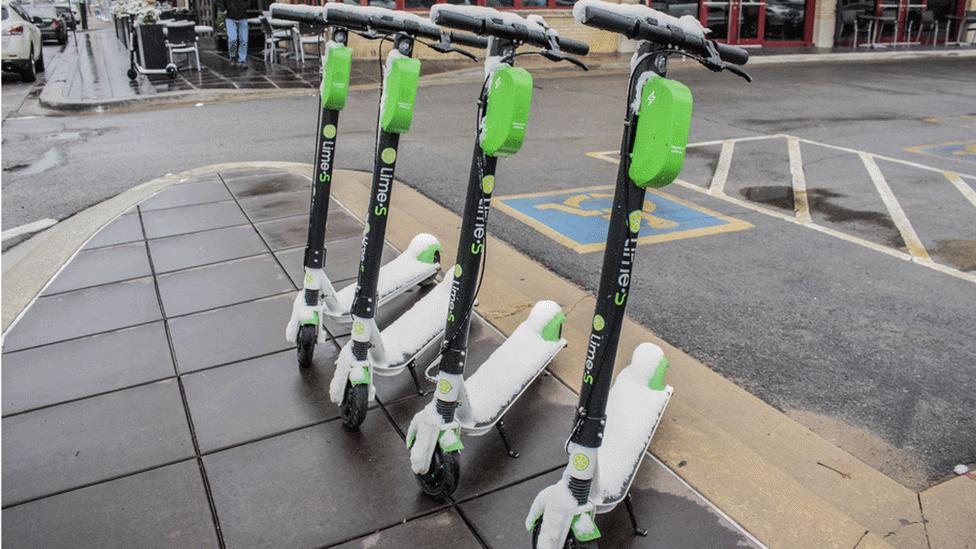
- Published23 April 2018